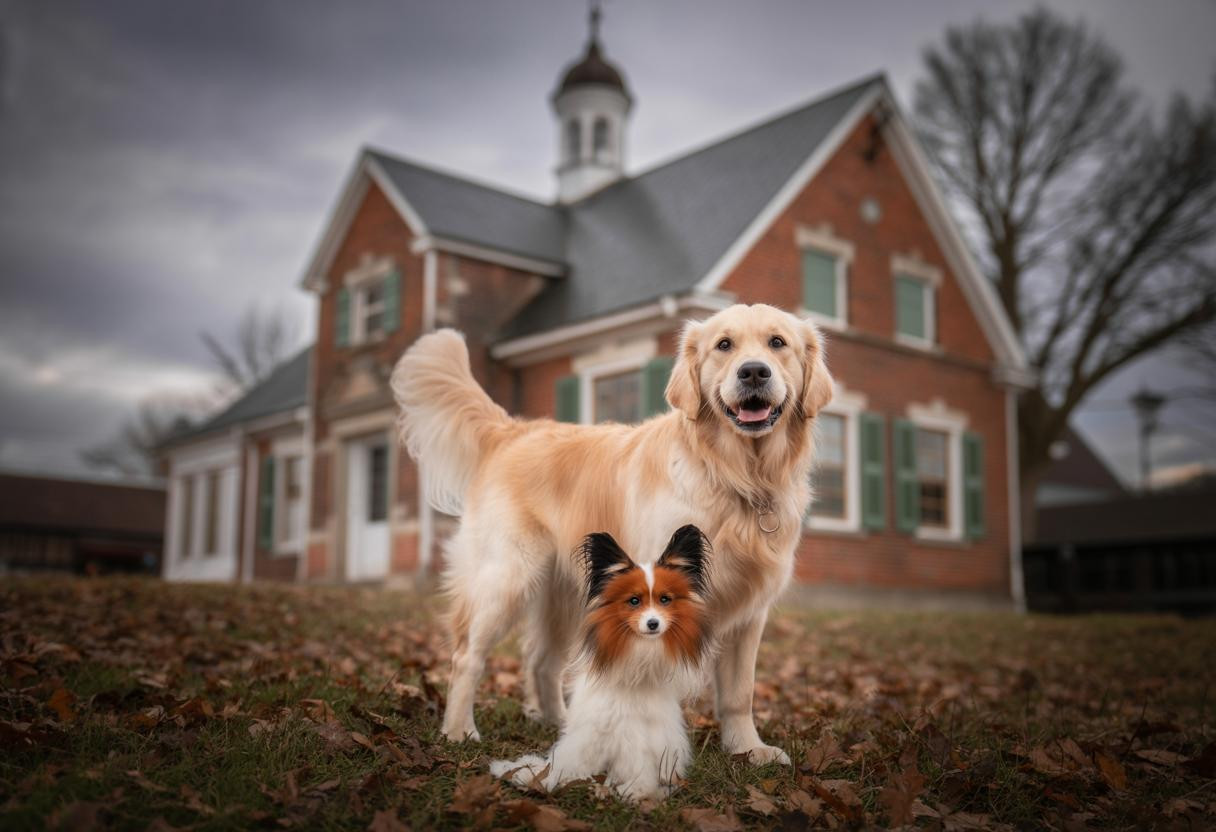While millions of Americans struggle with conventional politics, one tiny Kentucky town has been quietly proving that democracy works better with tail-wagging candidates and zero negative campaigning. For over 25 years, Rabbit Hash has elected dogs as mayors, creating a unique model that generates surprising economic benefits while fostering genuine community engagement.
This unincorporated community of just 315 residents has transformed a quirky tradition into a sustainable fundraising powerhouse that other rural towns are beginning to study. The results challenge everything we think we know about civic participation and economic development in small-town America.
The surprising economics behind canine campaigning
Rabbit Hash’s $1-per-vote system generated $22,985 in a single election cycle, far exceeding what traditional municipal fundraising typically achieves. This pay-to-participate model creates revenue streams that support the Rabbit Hash Historical Society’s preservation efforts, maintaining 19th-century structures that would otherwise crumble.
Unlike rural communities facing infrastructure challenges through traditional funding gaps, Rabbit Hash has discovered that novelty attracts national media attention. CBS, CNN, and YouTube features have amplified their visibility, creating a tourism magnet that draws visitors from across the globe.
The economic impact extends beyond direct donations. Local businesses report increased foot traffic during election seasons, and the town’s general store has become a must-visit destination for travelers seeking authentic Americana with a twist.
Crowdsourced governance meets community needs
Traditional municipal budgets rely on property taxes and state funding, but Rabbit Hash operates on community-driven micro-donations. This approach mirrors successful community-driven fundraising strategies that bypass institutional limitations.
The Rabbit Hash Historical Society functions as the town’s de facto government, making real decisions about infrastructure and preservation while the ceremonial dog mayor serves as a unifying community symbol. This dual structure separates governance from politics, eliminating partisan divisions that plague traditional municipalities.
How dog mayors create authentic civic engagement
Conventional voter turnout in rural areas averages 15-20%, but Rabbit Hash consistently sees participation rates exceeding 7,000% of its population. The 2020 election drew 22,985 votes from a town of 315 residents, demonstrating how creative approaches can energize democratic participation.
Campaign events become community festivals where neighbors collaborate on creative messaging and fundraising. Owners describe the experience as profoundly bonding, similar to how confidence-boosting choices trigger psychological transformations in other community settings.
The psychology of non-partisan politics
Political scientists note that animal candidates eliminate the psychological barriers that prevent civic engagement. Without human prejudices about race, gender, or party affiliation, voters focus purely on campaign messaging and community values.
Current mayor Wilbur Beast’s platform emphasizes “keeping politics fun” and avoiding the “icky parts” of human politics. This approach creates a safe space for political participation that welcomes residents who typically avoid conventional elections.
The replication challenge and sustainability concerns
While Rabbit Hash’s model appears successful, critical analysis reveals potential limitations. The $1-per-vote system could exclude lower-income residents, creating a pay-to-play dynamic that contradicts democratic principles. Additionally, reliance on media novelty makes long-term sustainability uncertain.
Other rural communities attempting similar initiatives have struggled to maintain momentum beyond initial media cycles. Rabbit Hash’s 26-year track record suggests that authentic community investment rather than mere gimmickry drives lasting success.
Lessons for modern democracy and community building
Rabbit Hash proves that effective governance doesn’t require traditional political structures. Their model demonstrates how creative fundraising combined with genuine community engagement can address infrastructure needs while building social capital.
For communities seeking alternatives to conventional politics, the key lies in balancing novelty with substance, ensuring that participation remains accessible while generating real benefits. Rabbit Hash’s success stems from treating their tradition as both celebration and practical solution—a formula that other communities might adapt for their unique circumstances.
